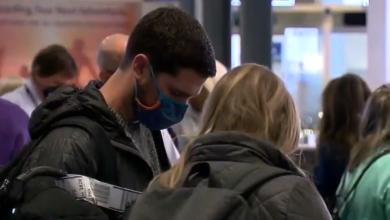
COLUMBUS, Ohio — A new study says 1 in 3 Ohioans may continue working from home, post pandemic.
That could mean big consequences for Ohio cities, including Cincinnati.
“There’s nothing wrong with working from home, but it does have unintended consequences,” said Keary McCarthy, Executive Director of the Ohio Mayors Alliance, which commissioned the study. “What does that mean to the average person? It means fewer resources for public safety, fewer resources for infrastructure and roads and bridges, it means fewer tools to incentivize new employers to come to our cities.”
Many Ohio cities rely on an earnings tax to fund their general fund budget. That tax is paid by people who work within city limits. If people transition to work from home, outside of city limits, that money would be lost.
Cincinnati’s earnings tax is 1.8%, one of the lowest in the state. However, according to the report, Cincinnati could stand to lose $43 million in tax revenue on the high end to $15.7 million on the low end.
“There's been a handful of us here at City Hall, we've been talking about this for over a year,” said council member and candidate Steve Goodin. “There is no question that at some point in the future, we're going to have to not just look at Cincinnati, but all major cities. Are going to look at how we fund our operations.”
The city put aside millions of dollars from the American Rescue Plan to fill any hole left in the budget from this shift.
“We’ve been very conservative there. But, the Biden administration can't keep printing money. We're already seeing inflationary pressures in the economy. So at some point, we're going to have to figure this out ourselves. It is a very, very serious issue. It is the issue,” said Goodin.
Still, a time when some businesses are shifting way from the office, engineering firm CMTA moved into a new office space in Pendleton earlier this year.
“For us it’s just a really good environment,” said Jeffrey Millard, VP of Operations for the Ohio offices of CMTA.
Millard said the company doesn’t plan to ditch the office any time soon.
“A lot of our people liked the collaboration, they liked to be able to bounce ideas off people. We never really 'came back, came back,' but even now if I look out, we’re probably 100% today because people just like collaboration.”
However, he said, the pandemic taught his staff that remote work can work. Meaning the company will be flexible for workers, allowing remote work when necessary.
“I think the pandemic reshaped everyone’s mindset, because before the pandemic, oh there’s no way you can get as much done at home. What we all proved is you can still do good work,” he said.









